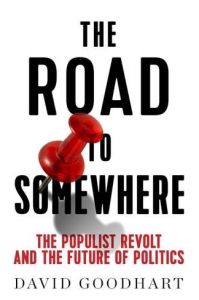
The Road to Somewhere
The Populist Revolt and the Future of Politics
Recommendation
Prospect magazine founder David Goodhart’s report from the front lines of populism could be a very influential political book. He embraces being controversial, provocative and unafraid to offend. Goodhart regards political labels such as “left” and “right” as so obsolete as to be meaningless. He provides alternatives in the handy, accurate terms he crafted: “Anywhere” and “Somewhere” voters. Politicians and campaign managers may view Goodhart’s analysis as an important reference for their strategies, and his Anywhere and Somewhere tags could become pivotal labels in political discourse and tactics. Ardent progressive liberals – Goodhart’s “Anywhere elites” – may well dislike his views, and could consider them as appeasing populist ideas that emerged from recent political shifts and power struggles. Politicians who embrace Goodhart’s messages may well gain followers and win elections. While always politically neutral, getAbstract recommends this thoughtful take on the sharp turn in recent politics and on how that turn may shape the political future.
Summary
About the Author
Founding editor of Prospect magazine David Goodhart heads the Demography, Immigration and Integration Unit at the think tank Policy Exchange. He also wrote The British Dream: Successes and Failures of Post-War Immigration.








Comment on this summary